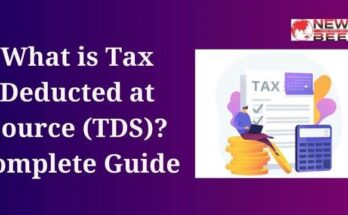In the modern financial landscape, credit card and debit card have become ubiquitous tools for managing transactions. While they might seem similar at first glance, these two types of cards serve distinct purposes and come with unique features. This comprehensive guide aims to delve into the intricate differences between credit cards and debit cards, shedding light on their functionalities, advantages, and potential drawbacks.
Table of Contents
ToggleUnderstanding Credit Cards
1. Definition and Purpose
A credit card is a payment card issued by a financial institution that allows the cardholder to borrow funds up to a predetermined limit. The primary purpose of a credit card is to provide users with a convenient means of making purchases and payments without the immediate need for cash. Unlike debit cards, credit cards involve borrowing money that must be repaid at a later date.
2. Credit Limit
One fundamental characteristic of credit cards is the existence of a credit limit. This limit represents the maximum amount a cardholder can borrow at any given time. It is determined by the credit card issuer based on the cardholder’s creditworthiness, income, and financial history.
3. Borrowing and Repayment
When a credit card is used, the cardholder essentially borrows money from the credit card issuer. The borrowed amount accumulates as a balance, and monthly statements detail the transactions and outstanding balance. Cardholders have the option to pay the full balance by the due date or make a minimum payment, carrying the remaining balance to the next billing cycle. Interest is charged on the outstanding balance if not paid in full.
4. Credit Score Impact
Credit cards play a significant role in shaping an individual’s credit history and credit score. Responsible credit card usage, timely payments, and maintaining a low credit utilization ratio positively influence credit scores. Conversely, late payments and high credit card balances can have adverse effects on creditworthiness.
5. Rewards and Perks
Many credit cards offer rewards programs, cashback incentives, and other perks to attract and retain users. These benefits vary widely and can include travel rewards, discounts on purchases, and access to exclusive events. The availability and nature of rewards depend on the specific credit card.
Unveiling Debit Cards
1. Definition and Purpose
In contrast to credit cards, debit cards are directly linked to a cardholder’s bank account. A debit card allows users to make purchases using funds available in their checking or savings account. The primary purpose of a debit card is to facilitate electronic transactions without the need for physical cash.
2. No Credit Limit
Unlike credit cards, debit cards do not have a predetermined credit limit. The cardholder can only spend the amount available in their linked bank account. This inherent limitation prevents users from borrowing money beyond what they possess in their accounts.
3. Immediate Funds Deduction
When a debit card is used, the corresponding amount is immediately deducted from the cardholder’s bank account. This real-time transaction ensures that users can only spend what they have, eliminating the risk of accumulating debt. Consequently, there are no monthly bills or interest charges associated with debit card usage.
Also, Read This: What is Digital Marketing in Hindi
4. No Impact on Credit Score
Debit cards do not impact credit scores since they do not involve borrowing or credit extensions. Transactions made with a debit card are a reflection of the available funds in the linked bank account. As a result, debit card usage does not contribute to building or damaging credit history.
5. Limited Rewards and Benefits
While some debit cards offer modest rewards or cashback programs, the benefits are generally more limited compared to credit cards. Debit card rewards typically revolve around discounts at select merchants or cashback on specific types of transactions. The scope and generosity of these rewards are not as extensive as those offered by credit cards.
Comparative Analysis
1. Security
Both credit and debit cards offer security features such as PIN codes, EMV chips, and fraud protection. However, in case of fraudulent transactions, the impact on the cardholder can differ. Credit cards generally provide more robust protection, with regulations limiting the cardholder’s liability for unauthorized transactions.
2. Overdraft and Fees
Debit cards come with the risk of overdraft if the cardholder attempts to spend more than the available balance. Overdrafts can result in fees charged by the bank. Credit cards, on the other hand, allow users to exceed their credit limit, but this incurs over-limit fees and potential penalties.
3. Interest Rates
Credit cards often carry higher interest rates compared to overdraft fees on debit cards. If a credit card balance is not paid in full each month, the cardholder incurs interest charges on the outstanding amount. Debit cards, when used within the available balance, do not attract interest charges.
4. Building Credit History
One significant advantage of credit cards is their role in building and improving credit history. Timely payments and responsible credit management contribute positively to credit scores. Debit cards, lacking a credit component, do not impact credit history.
5. Emergency and Travel Use
Credit cards are generally preferred for emergency situations and travel. They offer a line of credit that can be crucial in unexpected circumstances. Moreover, credit cards may come with travel insurance, rental car coverage, and other travel-related benefits. Debit cards may lack these features and may not be as widely accepted in certain situations.
Conclusion
In conclusion, credit cards and debit cards each serve distinct purposes in the realm of personal finance. Credit cards enable borrowing up to a predetermined limit, impacting credit scores and offering rewards, but they come with the risk of accumulating debt and accruing interest. Debit cards, directly linked to bank accounts, prevent overspending and do not impact credit scores, but they may lack the extensive rewards and benefits associated with credit cards.
Also, Read This: Top 10 Most Popular Sports in India
Ultimately, the choice between credit and debit cards depends on individual financial goals, spending habits, and preferences. Some users may benefit from the rewards and credit-building aspects of credit cards, while others may prioritize the simplicity and budgetary control offered by debit cards. Understanding the nuances of each type of card empowers consumers to make informed decisions aligned with their financial objectives.
Frequently Asked Questions (FAQs)
1. What is a Credit Card?
Answer: A credit card is a payment card that allows you to borrow funds from the card issuer up to a predetermined credit limit. You can make purchases using the credit card, and you’re required to repay the borrowed amount, usually on a monthly basis.
2. What is a Debit Card?
Answer: A debit card is a payment card that is linked to your bank account. When you use a debit card for a purchase, the money is directly withdrawn from your checking or savings account.
3. How Do Credit Cards Work?
Answer: With a credit card, you can make purchases up to the credit limit assigned by the card issuer. At the end of the billing cycle, you receive a statement indicating the total amount spent. You have the option to pay the full balance or a minimum payment. Interest is charged on the remaining balance if not paid in full.
4. How Do Debit Cards Work?
Answer: Debit cards are linked to your bank account. When you make a purchase, the corresponding amount is immediately deducted from your account balance. Debit cards do not involve borrowing money, and you can only spend what’s available in your account.
5. Can You Build Credit with Debit Cards?
Answer: No, using a debit card does not impact your credit history. Credit cards, on the other hand, can help build or hurt your credit depending on how responsibly you manage them.
6. What Are Overdrafts?
Answer: With a credit card, you can potentially spend beyond your credit limit, but this may result in fees and interest. With a debit card, overdrawing your account can lead to overdraft fees unless you have overdraft protection.
7. Do Credit Cards Have Rewards?
Answer: Yes, many credit cards offer rewards programs such as cash back, travel points, or other perks. Debit cards typically do not offer as many rewards.
8. What Are the Risks of Credit Cards?
Answer: The main risk is accruing high-interest debt if you do not pay your balance in full. Missing payments can also negatively impact your credit score.
9. What Are the Risks of Debit Cards?
Answer: Risks include potential overdraft fees and the direct impact on your bank balance if the card is lost or used fraudulently. While debit cards have some fraud protection, the process of resolving issues may take longer compared to credit cards.
10. Which is Safer for Online Purchases?
Answer: Credit cards generally offer more robust fraud protection for online purchases. If your credit card is used fraudulently, you’re typically not held responsible for unauthorized transactions. Debit cards may have similar protections but resolving issues can take longer, and you may be liable for a portion of the losses.




